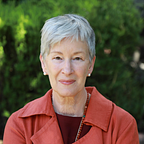Embracing Awe and Wonder: Pathways to Transformation
Understanding Awe and Wonder
It’s useful to start with our own experience. We can ask ourselves: how have I experienced awe in my life? When was the first time, as a child, that I experienced it? What was that like? What was it related to? How does the memory linger even until today? And essential to our inquiry is to ask ourselves: What was my most recent experience of awe?
Recalling inspirational experiences from our lives often leads us back to moments filled with awe and a deeper understanding of the world around us.
The book Awe: The New Science of Everyday Wonder and How It Can Transform Your Life by Dacher Keltner, a professor of psychology at UC Berkeley, explores the new science of human emotion, specifically focusing on awe and compassion and their roles in shaping moral identities and the human quest for meaning. Keltner’s career is dedicated to this study of emotions and their impact on life.
His years of study positioned him well for this work, as well as his willingness to investigate his own experience. Many human emotions have been studied, and now we have brain activity maps. But awe was one of the last to be explored. Likely because the experience of awe is so varied, hard to pin down, and by its very nature, beyond words. Understanding the transformative power of awe enriches our lives, offering us a lens through which the mundane reveals its hidden magic.
What is awe? How would you define it?
An online dictionary defines awe as a feeling of reverential respect mixed with fear or wonder.
Keltner & Jonathon Haidt define it this way: Awe is the feeling of being in the presence of something vast that transcends your current understanding of the world.
Like meditation, which was highlighted in the first message in this series, experiences of awe are transformative. We know that from our experience of it. Yet, learning how it transforms — the scientific, investigative look at what awe brings forth, is encouraging and helps us identify it as an essential medicine for our time. And we have free access to it!
Keltner wrote: How does awe transform us? By quieting the nagging, self-critical, overbearing, status-conscious voice of our self, or ego, and empowering us to collaborate, to open our mind to wonders, and to see the deep patterns of life.
This is something we know. When we experience awe, we are momentarily free from ego-based identity. From the research cited in Keltner’s book, Awe’s vanishing self has even been charted in our brains. The focus in this work has been the default mode network, or DMN, regions of the cortex that are engaged when we process information from an egocentric point of view. This finding would suggest that when we experience awe, regions of the brain that are associated with the excesses of the ego, including self-criticism, anxiety, and even depression, quiet down.” As our default self vanishes, other studies have shown, awe shifts us from a competitive, dog-eat-dog mindset to perceive that we are part of networks of more interdependent, collaborating individuals. We sense that we are part of a chapter in the history of a family, a community, a culture. And ecosystem.
